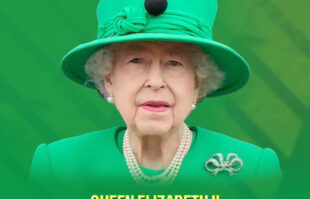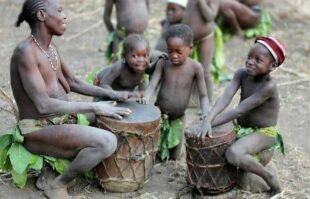The Idoma people are local inhabitants located in southern Nigeria’s region, which is east of the meeting point of the Niger and Benue rivers. The Idoma are a group of people who live predominantly in Benue State, Nigeria’s lower western regions, while some of them are also found in Cross Rivers State, Enugu State, Kogi State, and Nasarawa State.
The Idoma tribe is also a language of people who are known as the Agala, Iyala, Okpoto, Nkum, and Iguwale. These groups of Idoma language-speaking people are regarded as belonging to the Kwa branch of the Niger-Congo family of languages.
According to research, the Idoma people are sometimes perceived as the ethnolinguistic group that is predominant in some western areas like Benue State, Nigeria, and are the second largest group, occupying 9 local government areas such as Ado, Agatu, Apa, Obi, Ohimini, Ogbadibo, Oju, Okpokwu and Otukpo.
Furthermore, research also reveals that some of the Idoma people are also located in some other parts of the country, such as Nassarawa, Kogi, Enugu, and the Cross River States. The majority of the territory is located inland, south of the Benue River, around 72 kilometres east of where it meets the Niger River.
However, the Idoma tribe is renowned for being “warriors” and “hunters,” but they are also known to be welcoming and kind. History has it that up until the 1920s, the majority of Idoma country was virtually unknown to the West, preserving much of the vibrant traditional culture of the Idoma.
In this piece, Naijabiography narrates the history of Idoma, as well as the culture, political structure, economy, and territory of the Idoma people of Nigeria.
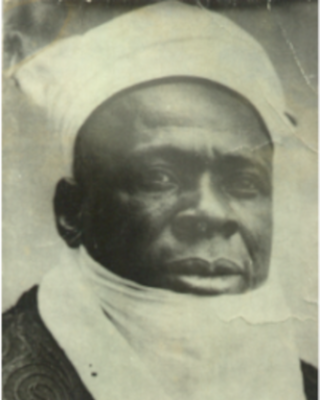
History
The origin of the Idoma people is not documented, and it is known to be passed from one generation to another as a result of oral history. However, legends reveal that the history of the Idoma people precedes the history of Benue State, which was created in 1976. In fact, they also revealed that the Idoma people had existed before the creation of the Federal Republic of Nigeria in 1960.
Meanwhile, “Who is your father?” was historically the defining question that barred one from major positions and titles in Idomaland. Naturally, many villages can trace their origins to a single progenitor, and multiple Idoma tribes can also trace their ancestry to a single common ancestor who is regarded as the “father” of the various groups.
History has it that Idoma’s father, Iduh, had a number of offspring who each created their own regions. Thus, “Iduh the father of Idoma” is used. It was said that Iduh begot Ananawoogeno who begot the children of Igwumale; Olinaogwu who begot the people of Ugboju; Idum who begot the people of Adoka; Agabi who begot the people of Otukpo; Eje who begot the people of Oglewu; Ebeibi who begot the people of Umogidi in Adoka, Edeh who begot the people of Edumoga and Ode who begot the people of Yala.
However, from the above, it is evident that the Idoma people are from different regions, with different historical backgrounds. For instance, the Otukpa people are said to have descended from three ancestors. These three ancestors include Owuno, Ameh-Ochagbaha and Oodo. Historically, the first two ancestors (known as brothers) are said to have migrated from Idah in Igalaland; Oodo migrated from Igbo land.
Therefore, due to the migration of these three brothers, some Idomas became descendants of the Igbos, who frequently intermarried with people from Igboland’s northern borders.
However, some scholars have different perceptions about the origin of the Idoma people. According to these scholars, they believe that Iduh was undoubtedly a migration leader, but contrary to what is claimed by the aforementioned stories, that is, he was not the “father” of the Idoma.
According to them, due to the pressure from northern invaders as recently as 300 years ago, many Idoma relatives claimed an ancestral homeland called Apa, northeast of the current Idomaland. The historical Apa was a member of the multiethnic ancient Kwararafa Kingdom (Okolofa Kingdom). Thus, the existence of this kingdom has been confirmed by informants from other ethnic groups, most notably the Jukun, who also think they formerly controlled the Kwararafa confederacy.
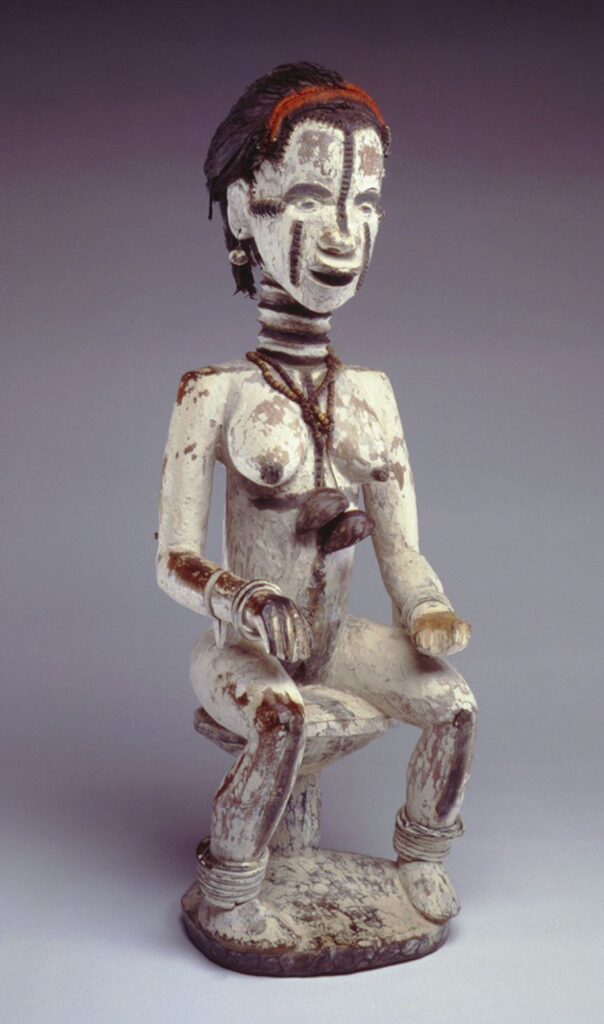
Some scholars also believe that the Idoma had relations with the Igala people to the west and that the two people shared an ancestor. Furthermore, it is stated that the Igala and Igbo have significant ancestral, historical, and cultural ties. According to legend, Eri was the first Umu-eri cultural leader and belongs to the Igbo people. Eri moved to Aguleri from the Igala region and founded a town (at Eri-aka) in the centre of the Anambra river valley, where he married two wives.
According to legend, five children were born to him by his first wife, Nneamak. The Ezeora dynasty, which has produced 34 kings in all in Enugwu Aguleri, was founded by Agulu, the ancestral head of the Eri Kingdom clans. Menri, the founder of Umunri/Kingdom of Nri, came in second. Onugu, the founder of Igbariam, and Ogbodulu, the founder of Amanuke, were next. The founders of Nteje, as well as Awkuzu, Ogbunike, Umuleri, Nando, and Ogboli in Onitsha, are supposed to have been born of the fifth child, a daughter named Iguedo.
Menri left Aguleri, which was and still is the ancestral temple of the entire Umu-Eri race, as one of Eri’s children (Umu-Eri and Umu-Nri). His sole child, Nja, was born to his second wife, Oboli, and he established the Igala Kingdom in Kogi State. Some members of this group hold the opinion that both ethnic groups once escaped from the same monarchy.
However, research reveals that some Idoma claims to be Igala descendants, and many traditional Idoma spiritual chants and “hidden” tongues used in traditional rites are Igala dialects. Other Idoma communities, particularly those in the south, assert that land disputes caused their ancestors to migrate from the northern edges of Igboland to where they are now. These individuals had likely escaped Apa as well and settled there afterwards.
However, some historians agree that the Idomas migrated from Apa in the Kwararafa Kingdom after it disintegrated, despite there being numerous opposing theories on the origin of this kind of tribe. Thus, they are thought to have originally resided on the territory of the modern-day Tiv before most of them were relocated there and the others to the present-day Nassarawa and Cross Rivers States.
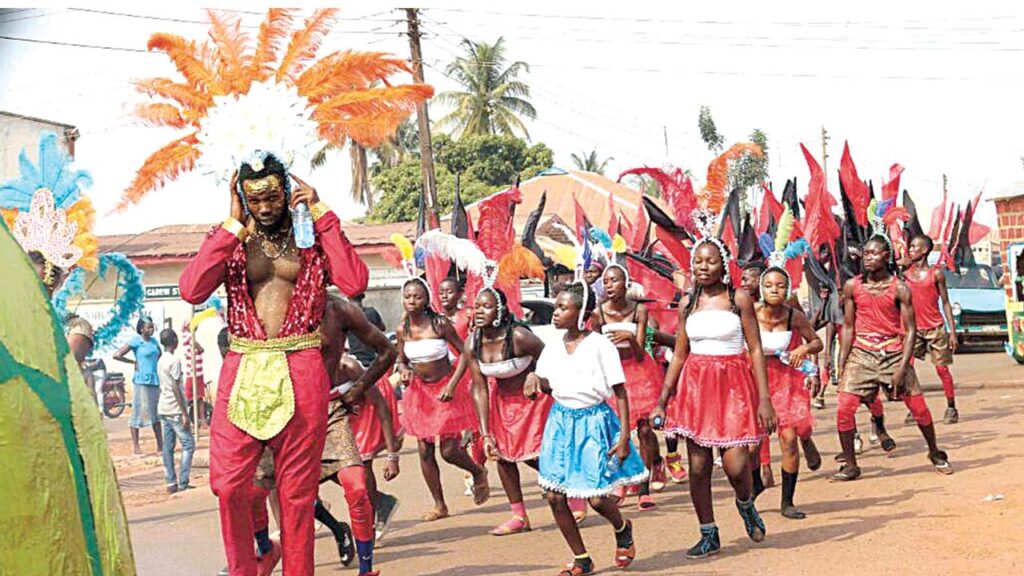
Economy
Agriculture in the rainy season and hunting in the dry season define the Idoma economy. Therefore, both small and large markets alternately take place in different districts. In addition, crafts, including cotton textile weaving and dyeing, as well as blacksmithing, have flourished in the general area.
In other words, the people of Idoma are majorly warriors, farmers, and hunters, and they are known to be hospitable and peaceful.
People and Culture
Idoma’s population is estimated to be around 3.5 million people. However, the Och’Idoma, who is the head of the Idoma Area Traditional Council, is the traditional leader of the Idoma people. In Idoma, research reveals that each community has its own traditional chief, such as the Ad’Ogbadibo of Orokam, Chief D.E. Enenche.
Thus, the palace of the Och’Idoma is located at Otukpo, Benue State. The current Och’Idoma, Elias Ikoyi Obekpa, was installed in office in 1997 and the position remains till he dies.
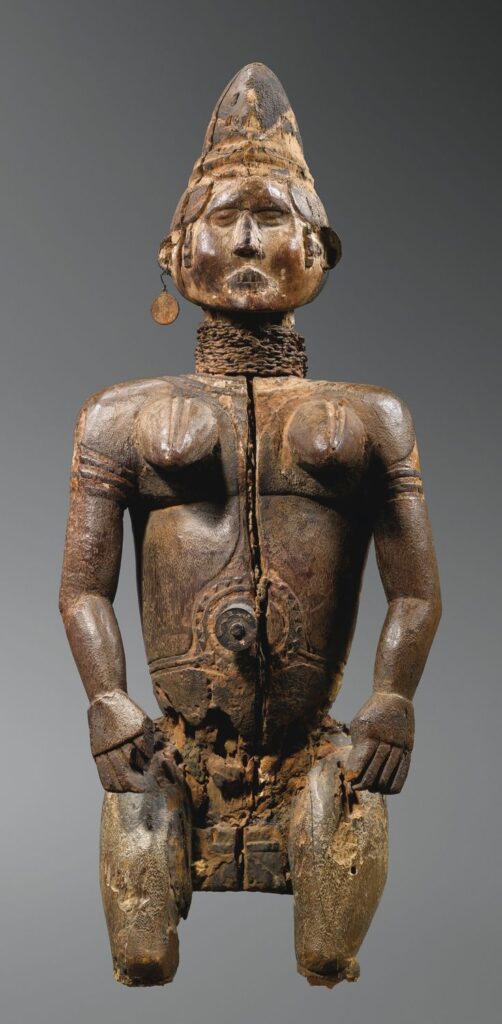
The traditional religious beliefs of the majority of the nation’s ethnic groups have been influenced by western customs since the arrival of Christianity, Islam, and other foreign religions. The Alekwu, which are thought of as ancestral spirits and a bridge between the living and the dead, are still strongly believed in by the majority of Idoma people. They hold an annual celebration called “Aje Alekwu” where traditional religious believers gather and offer sacrifices in honour of their ancestors all throughout the country.
The Alekwu-spirit of the ancestors, which the Idomas strongly identify with, is thought to serve as an invisible watchdog of the family and communities, preventing vices like adultery, theft, and murder.
Idoma Foods
The Idoma people are renowned for their love of food, and Benue State hosts an annual food festival to honour women and diverse regional specialities. The Okoho soup, which is created with the unusual Okoho plant, bush meat, and many other ingredients, is the most well-known of their specialities.
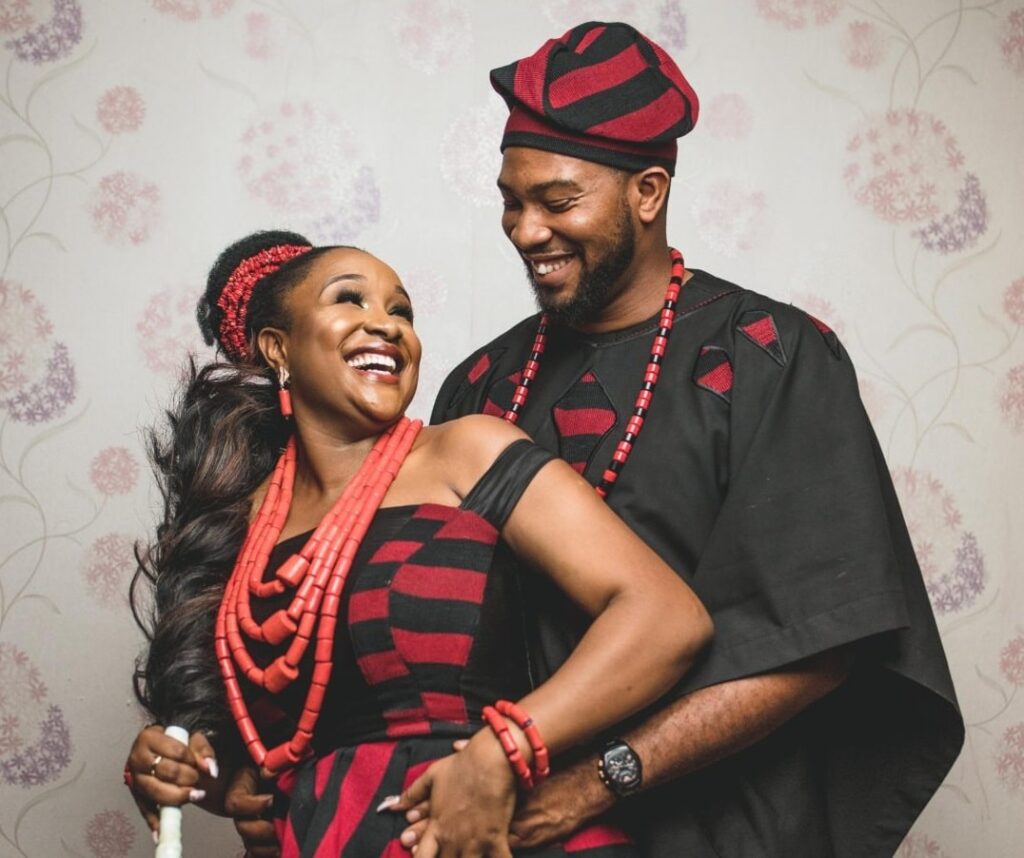
Idoma Marriage
Although the Idoma people’s marriage ceremonies and customs are similar to those of the Ibos and some other south-eastern tribes, there are several distinctive features that clearly set their tradition apart.
In some Idoma subcultures, the groom and his family will give the bride a rooster and money on the wedding day after the bride’s price has been paid. The bride’s acceptance is typically interpreted as her approval. She is showing disinterest if she refuses the present, though.
Even though there are no solid justifications, having a rooster is nevertheless an intriguing aspect of the event.
Notable People from Idoma
There are some prominent people in the society who were born in Idoma, and some even grew up in the community. Some of these personalities include 2baba Innocent Idibia (musician), David Mark (former Nigerian Senate President), Terry G (Nigerian musician), Susan Peters (Nollywood actress), and Daniel Amokachi (former Super Eagle player).


